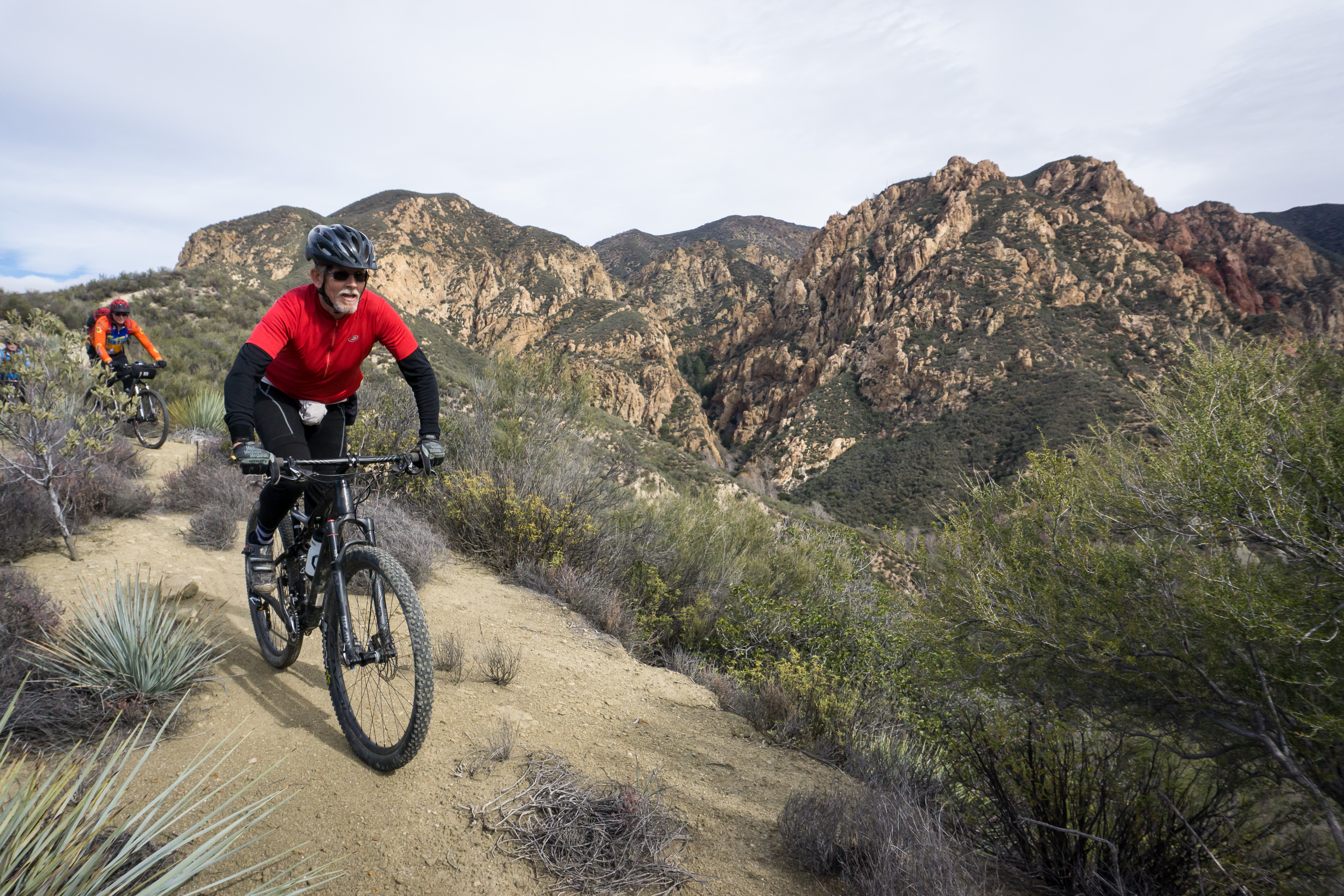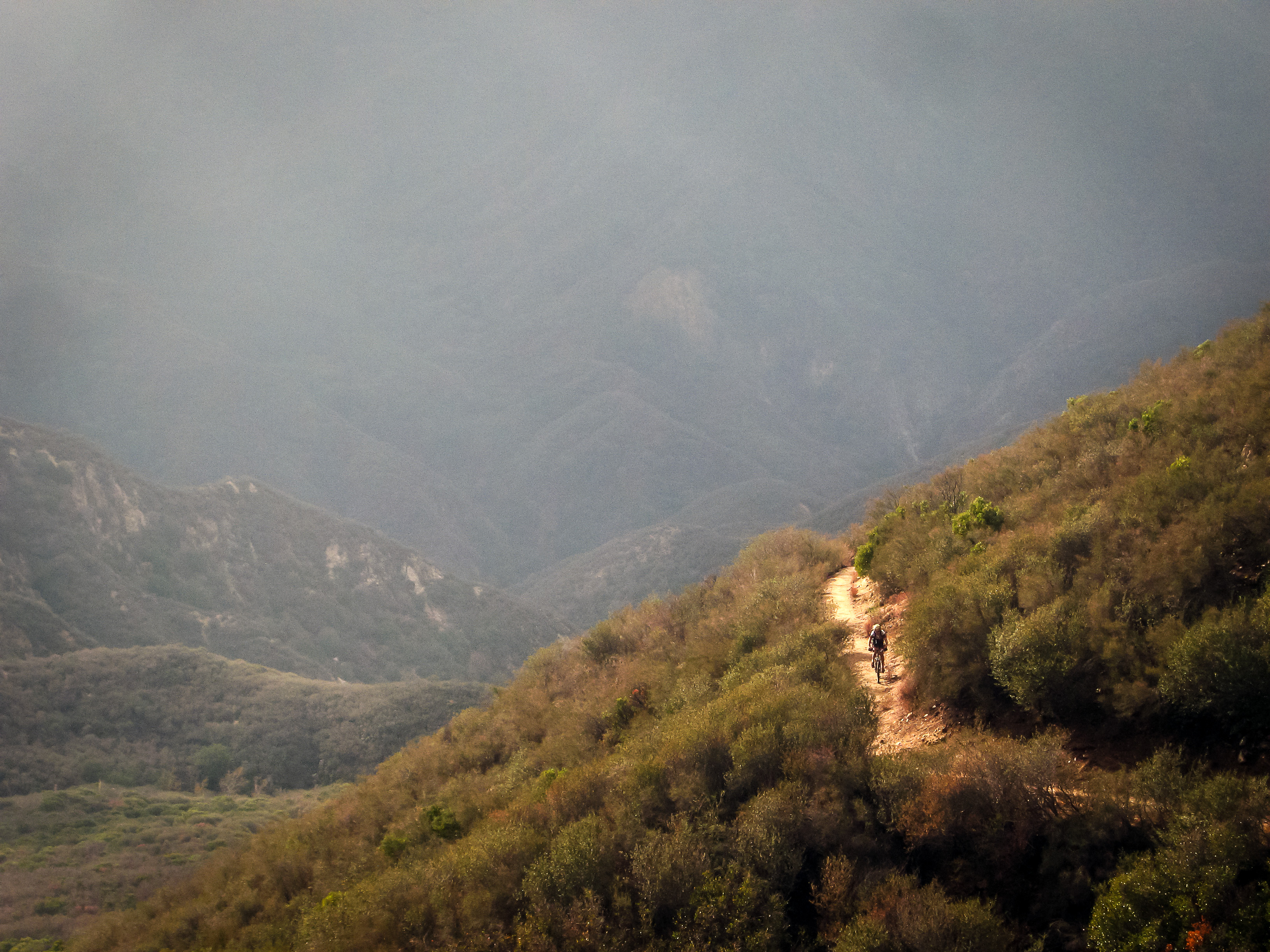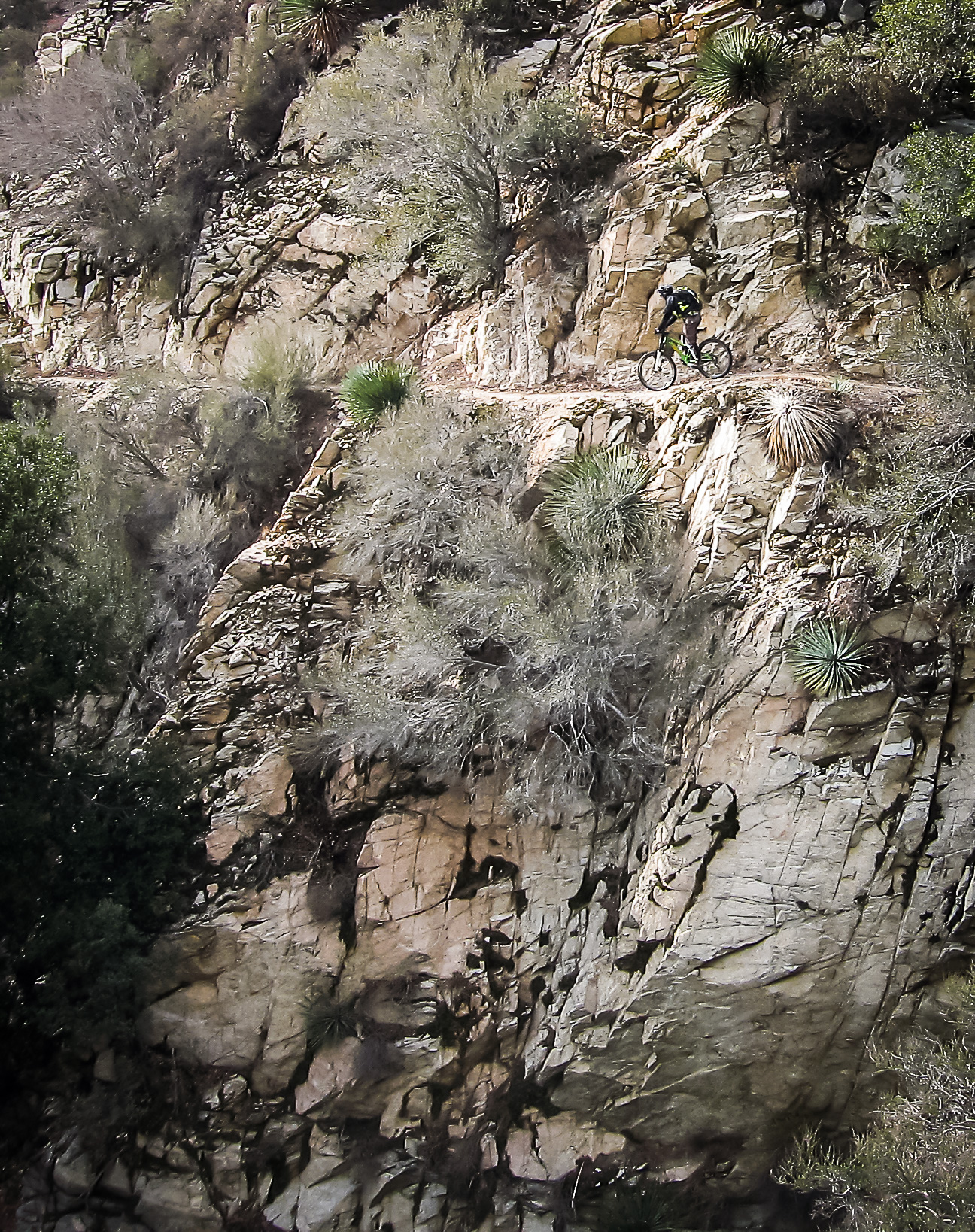Currently mountain bike advocacy is facing one of the the most important long-term issues in our history. The issue is whether mountain bikes should be allowed on trails in Wilderness areas. How mountain bikers and advocacy leaders respond to this can either be polarizing or make us an even stronger voice in the trail user and land stewardship community.
In Idaho Montana, the Wood River Bicycle Coalition, an IMBA chapter, worked with IMBA to build support for a National Monument rather than a Wilderness area. Over a period of several years, negotiations with wilderness advocates, motorized and other recreation groups and elected officials formed a broad coalition of support. However, raw ugly politics ultimately produced a Congressional designation for the Boulder White Clouds Wilderness. This was a painful and well-publicized loss to the mountain biking community. The land protection provisions they had negotiated in good faith to produce a bicycle-friendly National Monument designation were ultimately lost to a crass political maneuver to deny President Obama any semblance of a success. Congress passed a Wilderness bill and the Castle Divide and Ant’s Basin trails were closed to bikes.
Meanwhile, attorney Ted Stroll had been continuing his research into the Wilderness Act, and the congressional debates and intent surrounding that landmark legislation as it was enacted in 1964. He had concluded that the original intent was never to exclude bicycles, as a human-powered form of low-impact recreation, from Wilderness areas. Further research led him to believe that, in accordance with our constitution, we have the right to bring our grievances to the U.S. government. To do this, he formed the Sustainable Trails Coalition (STC), whose sole mission is to pass legislation that would allow local land managers to open trails to bicycles in Wilderness, and to authorize the use of machinery that would allow the most cost-effective and efficient maintenance on Wilderness trails, on a case-by-case, trail-by-trail basis.
How many mountain bikers view the wilderness ban on bikes
The timing of the Idaho defeat brought heightened attention to the STC and their focused, single-issue mission. It cast doubt in the mountain biking community about the effectiveness of IMBA’s approach of building broad partnerships and seeking compromises to both protect bicycle access, while protecting the landscapes through which we ride bikes with a mix of Wilderness boundary adjustments, cherry-stems, and alternative designations. This approach has been highly successful in many instances, but there have been some exceptions, with this loss in Idaho being the most recent and the most publicized.
Here in the Angeles National Forest, we’ve lost access to much of the backcountry trail network on our Forest. This has placed increased use pressure on non-Wilderness trails by all user groups. Trail maintenance on Wilderness trails has come to a near-halt in many areas, and all user groups are losing those trails to nature. We don’t have any bicycle-legal singletrack options to traverse the San Gabriel Mountains north-south, or east-west, because of numerous closed trails, Wilderness designations, and restrictions on bicycles on the Pacific Crest Trail. Similarly, in the Sierra, Inyo, and Sequoia National Forests there are vast swaths of Wilderness and a few isolated areas that are open to bikes, many of which are currently being evaluated for Wilderness (and, remarkably, the folks who maintain many Wilderness trails and can’t keep up with the workload have objected to any new Wilderness.).
These Wilderness losses are very much a localized issue, affecting California and the Western States disproportionately to other areas. California has the most Wilderness areas of any state, and is second only to Alaska in Wilderness acres. Here in CORBA’s territory, we have the largest population base in the country near a National Forest. 1 in 20 Americans live within easy driving distance of the Angeles National Forest, with its five Wilderness areas and additional Recommended Wilderness taking nearly one third of the Forest.
Recreational activities are greatly reduced in Wilderness areas compared to non-wilderness areas, even if bicycles are left out of the equation. Maintenance efforts are greatly reduced and near-impossible for the Forest Service to schedule, as the cost of manual labor to rebuild trails (no mechanized tools allowed, even wheelbarrows) means these trails often don’t get worked on. While the same can be said of many lesser-used non-wilderness trails, this doesn’t bode well for the future of Wilderness trail recreation.
It also disproportionately affects a smaller subset of the mountain biking community who seek out, relish, and live for backcountry wilderness-type settings that can be experienced by bicycle. It’s why I started mountain biking, and what inspires me to continue exploring and experiencing these majestic landscapes. Sure, I love purpose-built flow trails, downhill trails, and our many favorite local trails. They are needed, but they don’t offer the same experience and escape that some of us live for. We need a broad spectrum of experiences and trail types to cover the many diverse reasons for which people ride mountain bikes, including wilderness-type experiences.
There have been calls for IMBA to take a stronger stand on the Wilderness access issue in print media, the blogosphere, and on social media. In fact, if you have followed closely, the amount of grandstanding on both sides of the bikes in wilderness debate has escalated. From reading some of what has been published, one could easily come away with the assumption that mountain bikers have to pick a side: either support the Sustainable Trails Coalition or support IMBA. Over the past month there have been many calls, emails and forum posts asking to cancel IMBA memberships.
Some writers in the print media have accused IMBA of taking a hardline stance against the STC, but there is much more nuance to their statements that has been overlooked. IMBA hasn’t condemned the STC or opposed their efforts. In fact, IMBA has for many months taken a neutral public policy position toward STC’s strategy, neither supporting nor opposing. Publicly, IMBA has simply stated that the STC approach is not appropriate for IMBA’s mission, given STC’s single focus, uphill battle, risks and uncertain future.
Singletracks.com, an internet blog, found the vast majority of mountain bikers surveyed support bicycle access to wilderness. The Angry Singlespeeder gave his take on the issue, calling it the most pressing of our time, and followed it this year with an Open Letter to every IMBA member calling on us to demand IMBA to listen to its membership and take a more proactive stance towards the STC. Former IMBA Board Member John Bliss explained why he joined the STC board, with some compelling arguments.
Pressure continues to mount calling for IMBA to support the STC, or at the bare minimum, take a more conciliatory stance and acknowledge the common ground that exist between the two organizations. IMBA have held a press conference explaining their position, posted an FAQ on land protection strategies they will continue to utilize, and conducted four Chapter Leader Executive Briefings with question and answer sessions with approximately 100 chapter leaders nationwide, which I attended. Many forum comments have construed their public arguments and tone as denigrating and dismissive of the STC, but in direct conversations with IMBA staff, that tone is much more nuanced.
With all this attention on Wilderness, one could be misled into thinking that this was the only issue facing mountain bikers. Admittedly, it is probably the most far-reaching issue that could fundamentally change our approach, as mountain bikers, to land protections nationwide, and especially in the Western states like California. But there are still plenty of more immediate issues and opportunities that need immediate, focussed attention, and that is where IMBA has chosen to put its limited resources and energy.
We see this “us vs. them” dichotomy as far from the case. The fact that IMBA has chosen not to support STC does not infringe upon anyone’s first amendment right to speak up for and support the STC, including us as a chapter of IMBA. IMBA’s (and CORBA’s, for that matter) plate is full with current mountain biking issues, and the vast amount of attention and resources needed to achieve the STC’s mission and focus on Wilderness access would hinder our ability to tend to more immediate threats, identify new opportunities, take advantage of current opportunities, and just get things done now.
We believe we need both organizations. STC’s single, focussed mission is to enact legislation that will allow management of wilderness trail access (and mechanized maintenance) to happen at the most local level feasible. STC is not a membership organization and as such is not structured for or able to do anything on the ground right now to open closed trails to bikes or develop and maintain positive relationships with land managers that are key to our future successes. It will be a difficult struggle and take some time before STC’s efforts may prove fruitful.
IMBA chapters are currently doing the vast majority of advocacy and access work at the local levels. If STC is eventually successful in passing their legislation it will likely be IMBA chapters doing the necessary outreach and hands-on work to give the STC’s legislation teeth, by working directly with local land managers to open trails under the authority of STC’s Human Powered Wildlands Travel Management Act of 2016 (HPWTMA).
Despite what has been claimed by the Wilderness Society and others opposed to bicycles in Wilderness, the STC bill doesn’t open ANY trails to bikes or mechanized maintenance. It allows the “most local” land managers feasible (likely district rangers and supervisors) to make those determinations on a case-by-case, trail-by-trail basis. That’s why IMBA chapters will need those strong relationships when and if the time comes.
You can bet the opposition to bikes will only get louder when that happens, both locally and nationally. It will be IMBA chapters with current, strong land manager relations that will be best positioned to follow through on any STC success. Land managers aren’t just going to open trails to bikes in wilderness areas if the STC bill is eventually enacted. If the STC bill does go through–and let’s be clear that we hope it eventually will–IMBA Chapters will need to actively engage with local land managers to open trails to bikes under the newly granted authority of STC’s legislation. Even then, those trail openings will probably require a lengthy NEPA process, and may come with restrictions. Permits, capacity limits, mandatory leave-no-trace classes, or other hurdles could be put in place as a part of that Wilderness access. Passing of the HPWTMA is just the starting point to opening trails in Wilderness.
In the meantime if people start choosing to drop support for IMBA chapters to support the STC, that will impede our ability to get things done now, such as bike parks, trail maintenance, new trails, and being a crucial voice in current land management and trail planning efforts. If CORBA/IMBA is weakened by an attrition of supporters now, it will hinder our ability in the future to build upon any STC success, and open trails currently closed to bikes by Wilderness designations.
One of the best things that STC is doing is bringing more attention to this major access issue. What saddens and frustrates us is that social media are misinterpreting some of IMBA’s responses, and turning this into an “us vs. them” situation, which will weaken our efforts on both fronts. We’d much preferred to have a more conciliatory tone from IMBA towards STC, even in the absence of outright support. IMBA has alienated a portion of their members through their statements and firm stance. That just doesn’t need to be so.
There is room–and a great need–for another group like STC to give the Wilderness issue the razor-sharp focus it will need to see through.
IMBA is a 501c3 and cannot directly lobby our government to introduce new legislation, endorse political candidates, and other restrictions. IMBA (and CORBA) are set up as 501c3 public benefit corporations, that can only influence existing laws and policies through public comments, broad-based partnerships with other organizations, and encouraging our members to speak up with their own comments and letters to elected representatives and land managers.
STC is set up as a 501c4, with the specific purpose of directly lobbying congress and our elected officials to enact change at the legislative level. They are able to do things that IMBA and CORBA cannot. It’s important to note that the Sierra Club is a 501c4, just like the STC. They have a companion 501c3, the Sierra Club Foundation, which collects tax-deductible donations that can then be used to support the lobbying efforts of their 501c4. They also operate under budgets 100 times larger than IMBA’s. Most mountain bikers are decidedly lackadaisical in their approach to advocacy–until their favorite trail is closed, or threatened to be closed. And as previously mentioned, while most mountain bikers support opening some trails in Wilderness to bicycles, the number of riders who may eventually utilize wilderness trails is likely much lower.
The mountain biking community has never had a 501c4 organization to stand behind before the STC came along. Just as the Sierra club leverages both a 501c3 and a 501c4 for various, but related, purposes, the mountain biking community has needed both a 501c3 and a 501c4 voice. As mentioned, where we see things have gone awry is that IMBA’s firm but neutral stance has been twisted and construed in social media and the blog/print media as an “us vs. them” situation.
IMBA’s approach is appropriate for IMBA. The STC approach is appropriate for STC. Together, they have brought more attention to this contentious debate, and hopefully helped engage a new cadre of concerned mountain bikers ready to advocate for continued access to trails–both inside and outside of Wilderness. Both organizations are advocating for increased trail access. They are just employing different strategies and tactics.
Let me re-iterate that in the long run, if STC is successful, strong IMBA chapters will be best positioned to make the changes that STC’s bill will authorize. We’ll then need to leverage our ongoing track record of being good land and trail stewards, and work side-by-side with local land managers to open trails in Wilderness areas. We’ll need to work hard to usher those requests through the NEPA process, and deal with the opposition to bikes that will inevitably emerge. If our voice is weakened by a lack of support now, we’ll be in a more difficult position to ask for trails to be opened under the STC bill’s authority in the future.
If STC is unsuccessful, IMBA chapters like CORBA will continue to work to make a difference, just as we have been doing for more than 29 years. We just hope to have the continued–and even increased– level of support we now get from our members.
But things at IMBA have changed somewhat. Their 2016 advocacy position clearly states that they will continue to fight more aggressively to keep trails open in the face of Wilderness proposals, wherever there are local chapters available to do the local on-the-ground work needed. They have been emboldened to take a firmer stance than ever before to prevent trail closures, within the constraints they operate under as a 501c3. Wilderness and environmental advocates are finding it increasingly difficult to pass Wilderness legislation when advocacy groups like IMBA and its chapters are directly and strongly opposed. IMBA is also investigating the merits of a legal challenge to recent trail access losses in the Bitterroot National Forest in Idaho. They have expressed a desire to legislatively adjust existing Wilderness boundaries to open trails that have been closed to bikes (without any changes to the Wilderness Act itself). But their stance falls short of lobbying for sweeping change at the legislative level, which is precisely what STC is positioned to do.
CORBA and IMBA have on a number of occasions asked for “language-based exemptions” to prohibitions on bikes on specific trails in new Wilderness proposals. We’ve usually been turned down on these requests as being “incompatible with the intent of the Wilderness Act” even though numerous language-based exemptions exist for purposes other than bicycle travel and recreation, and the STC’s contention that the “intent” of the Wilderness Act has been misinterpreted in current regulations. Yet what STC is proposing is making such language-based exemptions (or, more accurately, allowing Forest Service orders to authorize access) for bicycles and trail maintenance, an integral part of an amended Wilderness Act.
Let’s not have this issue divide us, weaken us, and allow us to be conquered. Our members can support both STC and CORBA/IMBA, and both organizations will be stronger for it. While we applaud the STC for their approach, CORBA will continue to work on efforts that have immediate, near-term benefit to all mountain bikers and our public lands: trail maintenance, management plan advocacy, currently pending bills, land manager relations, education, and stewardship.
We also hope that one day, CORBA will be in a position to ask our local land managers to open trails in current Wilderness areas to bikes, under the authority of STC’s legislation. But until then, we have to stay strong, stay united, and keep striving towards making immediate, short-term differences, happy in the knowledge that STC is working on a long-term strategy that most of our members agree would be a step in the right direction for all of us.
Tags: imba, STC, wilderness







As president of the Bitterroot Backcountry Cyclists we agree that we need both IMBA and STC. Just to let you know we are in Montana and not Idaho.